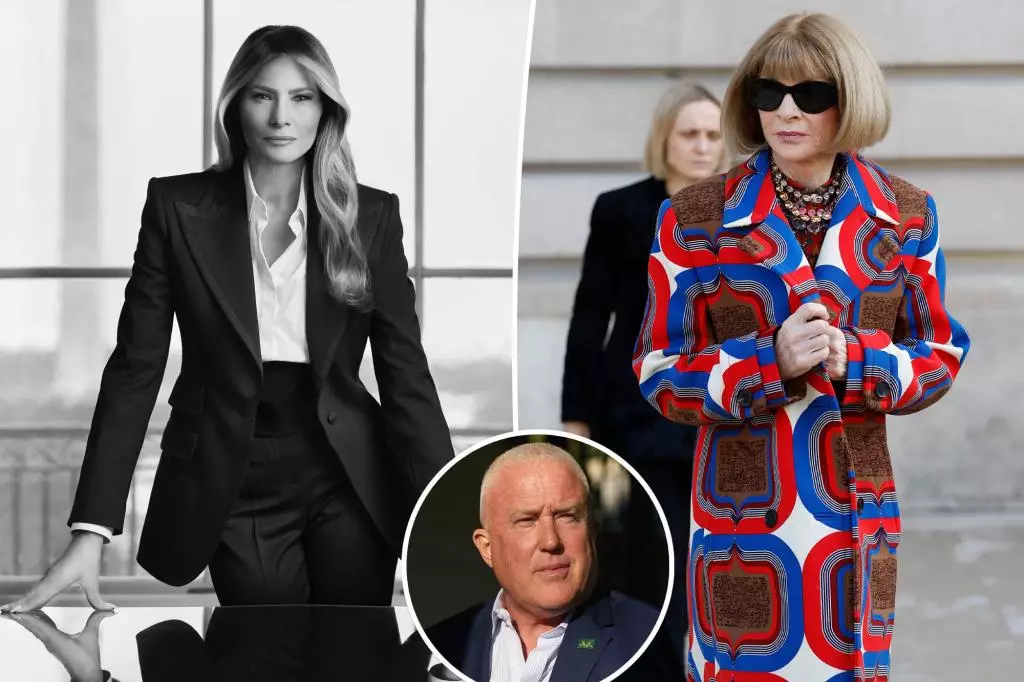In the volatile world of fashion and politics, few confrontations are as striking as the ongoing feud between Melania Trump and Vogue magazine. The recent commentary by Vogue about the First Lady’s public image ignited a firestorm of criticism from her supporters, leading to broader discussions about the intersection of fashion, media, and political identity.
Vogue, often viewed as the authoritative voice in fashion, took an uncharacteristically harsh stance on Melania Trump’s portrayal as First Lady. The magazine contrasted Trump’s appearance to that of a character from “The Apprentice,” suggesting that she looked more like a guest star than a national symbol. Such biting remarks not only aim to undermine her public persona but also reflect larger societal tensions regarding the role of women in political scenery.
Friends and supporters of Melania have rallied to her defense, launching a boycott campaign against Vogue and its parent company, Condé Nast. Bill White, a close ally of Melania and a political appointee, exemplified this support, expressing love and admiration for the First Lady. His call to action—cancelling subscriptions to Vogue—underlines a growing divide between Trump supporters and mainstream media outlets. This move reveals a culture of loyalty that is prevalent among the MAGA faction, showcasing their disapproval of how traditional media portray their figures.
The debate stirs questions about Melania’s identity beyond her fashion choices. White’s effusive praises for the First Lady as not only beautiful but also elegant and eloquent highlight a narrative that attempts to elevate her status far beyond that of a mere fashionista. He emphasized her proficiency in multiple languages and her acumen in business, painting a portrait of a woman deeply underestimated by critics.
Despite the high praise from her supporters, Melania has expressed a disinterest in the fashion spotlight that comes with being on the cover of magazines. In an interview, she remarked, “We have so many other important things to do than to be on the cover of any magazine.” This statement reflects a disconnection between her and the fashion industry—a realm that she seems to view as irrelevant to her role as First Lady.
Though Melania appears unfazed by Vogue’s critique and lack of cover opportunities, her relationship with the fashion industry has been fraught with challenges. Reports suggest that many fashion designers have refused to dress her, complicating her interactions with this critical sector. This sentiment is rooted in a larger narrative that suggests that her political stances and association with Donald Trump have alienated her from the fashion elite.
Supporters believe that Melania has embraced a “don’t care” attitude towards criticism, claiming that her lack of major magazine covers is a thing of the past. One insider echoed that such disparagement is nothing new for her, as she has been the target of media derision for years. The hostility she faces from fashion insiders could signify a broader cultural rejection rooted in both politics and personality incompatibility.
The ongoing feud signals a troubling trend where media representations are weaponized in political battles. By trivializing Melania Trump’s role, critics reveal their beliefs about gender, power, and expectations placed upon women, especially those in the public eye. Thus, the fashion world and political landscape are not merely separate spheres but interconnected arenas where identities are marketed, contested, and, often, reshaped.
While Vogue has featured other prominent female figures like Jill Biden, the collective backlash against Melania exemplifies the polarized nature of contemporary American society. In an era defined by divisions and echo chambers, the clash over Melania Trump’s image serves as a case study for the ongoing struggles that define public perceptions of women in politics.
The intersection of fashion and politics persists as a contentious arena, with celebrities finding themselves trapped in a web of media scrutiny, public expectations, and political realities. This intricate dance of public representation raises questions about authenticity, identity, and the nature of female power in today’s world.


Leave a Reply